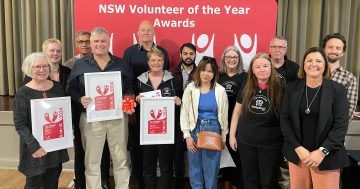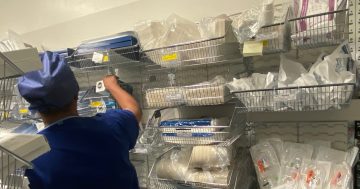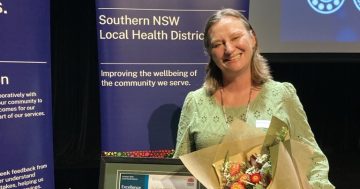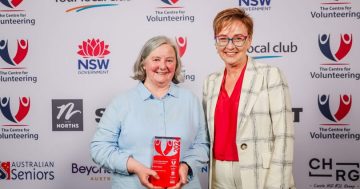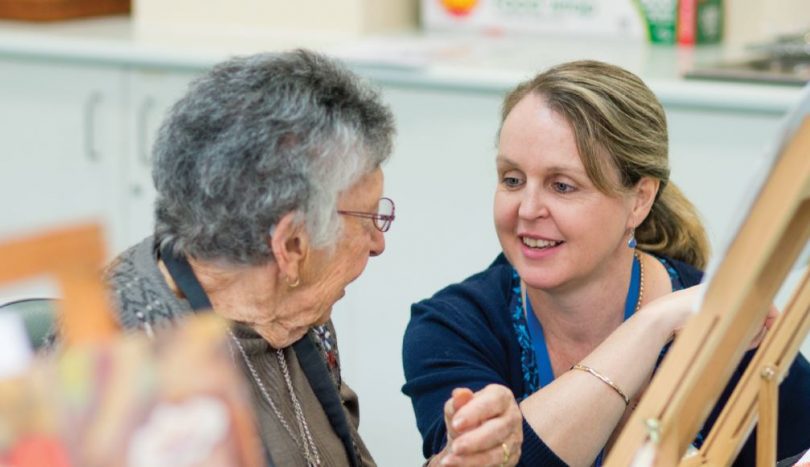
A new service is seeking more people to become palliative care volunteers in the Queanbeyan region. Photo: Palliative Care NSW.
The demand for more palliative carers in the Queanbeyan-Palerang region has led to the establishment of a volunteer service that is urgently seeking more people to become palliative care workers in their community.
A collaboration between Palliative Care NSW, Southern NSW Local Health District and COORDINARE has established the new Queanbeyan Region Palliative Care Volunteer Service which is calling for men and women above the age of 18 from across the region to become carers for people with a terminal illness.
“Volunteers provide one-on-one meaningful social support to clients, their family and carers,” said project officer Fiona Sivyer. “It’s about maintaining the quality of life until death.
“Carers might want volunteer support so they can have a few hours’ break each week. They might want a volunteer to stay with their loved one while they go have a shower or get to an appointment without worrying about leaving their loved one alone.”
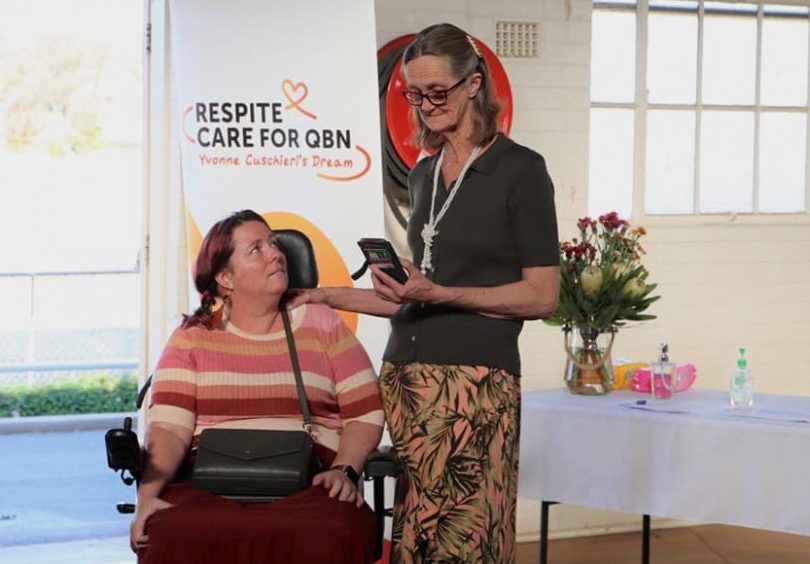
Tascha Loadsman (left) with Gillian Southwell (right) at a fundraiser for the Respite Care for Queanbeyan organisation. Photo: Supplied.
The focus on palliative care became evident when 46-year-old Queanbeyan mother of five Tascha Loadsman was put into palliative care last week while battling motor neurone disease after being diagnosed in December 2019.
No longer able to speak clearly, Ms Loadsman made an impassioned plea for ongoing funding for a respite centre in Queanbeyan where she could receive care while taking the pressure off her family.
“In the palliative care centre, I will eventually go to die, surrounded by the dying,” said Ms Loadsman through her friend, Gillian Southwell. “I can only imagine how much less of an impact on all of us it would be if we had a local respite centre.”
Land and $1.5 million in funding from the NSW Government and Federal Government will ensure the facility is built, however more than $1 million a year is required to keep the six-bedroom facility operational.
The respite care facility will provide short-term residential care for people aged 18 to 60 who are suffering from a terminal or chronic illness, and their carers in the Queanbeyan-Palerang region.
Palliative care volunteer coordinator in the Queanbeyan region, Ruth Kinlyside, said the new volunteer service establishes links within local residential aged care facilities so volunteer support can be offered to people who are alone at end-of-life, or who are waiting for their family to arrive.
“I’ve seen how palliative care volunteer services can benefit people with life-limiting illnesses, and their families, and I’m excited to offer this service to the community in which I live,” she said.
“The successful applicants receive valuable comprehensive training, ongoing support and our supervision.
“The volunteers are bound by professional ethics of confidentiality and must obtain mandatory security checks prior to starting as a volunteer. But there are no other specific qualifications or experience required.
“I would add that life experience, excellent listening skills, compassion and empathy are enormously beneficial as a volunteer.”
Ms Sivyer said there is often a need for more men to become palliative care volunteers.
“Some clients would prefer to interact with another guy about common interests and concerns – tell their story,” she said.
“People just want to feel heard and understood, particularly during such a significant time of life, so it is really important that we can make a good volunteer match and get it right for each client and their family.”
In NSW, there are 46 palliative care volunteer services hosting more than 1600 volunteers, who provide a free service that supports carers and families, either in person or sometimes by phone or video calls.
People wanting to apply should email [email protected].
Original Article published by Michael Weaver on The RiotACT.







